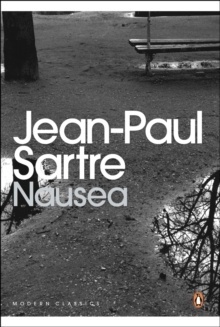Nausea

Editorial Penguin Books Ltd
Colección LONGMAN, Número 0
Fecha de edición agosto 2014 · Edición nº 01
Idioma inglés
EAN 9780141185491
240 páginas
Libro
encuadernado en tapa blanda
Dimensiones 129 mm x 196 mm
Resumen del libro
Jean-Paul Sartre's first published novel, Nausea is both an extended essay on existentialist ideals, and a profound fictional exploration of a man struggling to restore a sense of meaning to his life. This Penguin Modern Classics edition is translated from the French by Robert Baldick with an introduction by James Wood. Nausea is both the story of the troubled life of an introspective historian, Antoine Roquentin, and an exposition of one of the most influential and significant philosophical attitudes of modern times - existentialism.
The book chronicles his struggle with the realisation that he is an entirely free agent in a world devoid of meaning; a world in which he must find his own purpose and then take total responsibility for his choices. A seminal work of contemporary literary philosophy, Nausea evokes and examines the dizzying angst that can come from simply trying to live. Jean-Paul Sartre (1905-1980) was an iconoclastic French philosopher, novelist, playwright and, widely regarded as the central figure in post-war European culture and political thinking.
Sartre famously refused the Nobel Prize for literature in 1964 on the grounds that 'a writer should not allow himself to be turned into an institution'. His most well-known works, all of which are published by Penguin, include The Age of Reason, Nausea and Iron in the Soul. If you enjoyed Nausea, you might like Albert Camus' The Outsider, also available in Penguin Modern Classics.
'One of the very few successful members of the genre "Philosophical Novel" ... a young man's tour de force'Iris Murdoch
Biografía del autor
Jean-Paul Sartre (1905-1980), filósofo francés, máximo exponente del existencialismo, fue galardonado con el Premio Nobel de Literatura, que rechazó.








